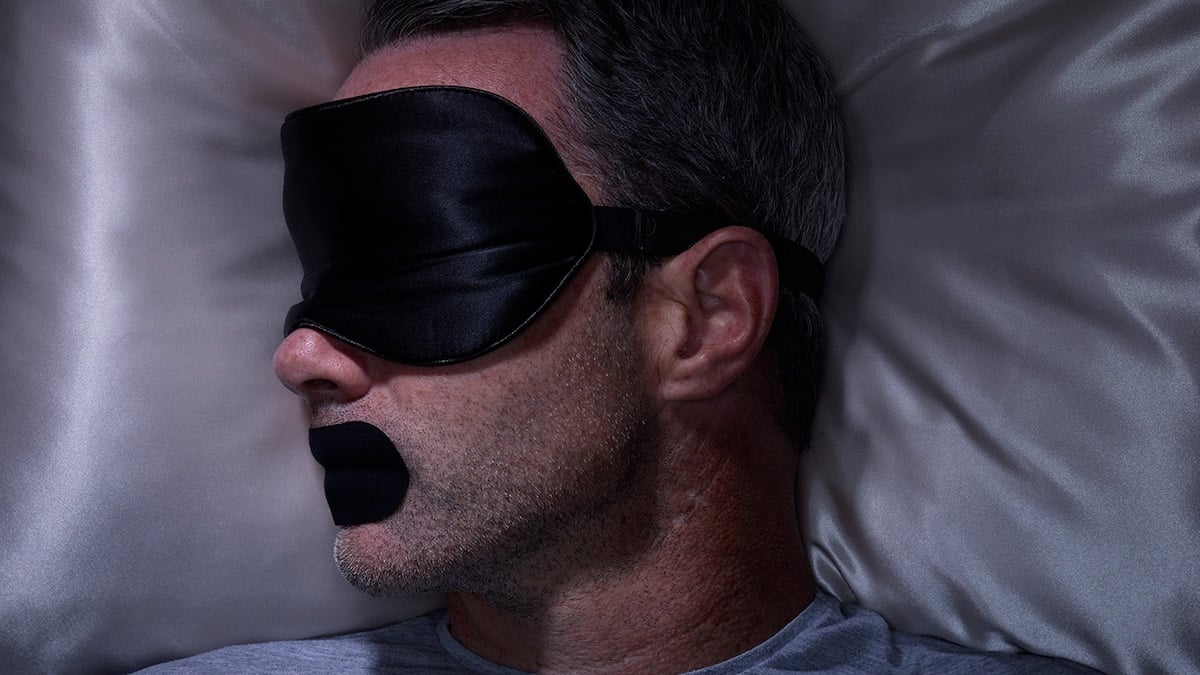…
According to a 2023 survey of 2,005 adults who had recently tried sleep trends, more than one in 10 people had tried mouth taping. People admit to trying the trend to stop snoring, reduce mouth breathing, and for some—to change their face shape. Some videos on the social platform claim that mouth taping improves the jawline and reduces the appearance of a double chin.
Despite the online popularity of the sleep trend, the medical evidence to support this practice is scant, says Indira Gurubhagavatula, professor of medicine at Perelman School of Medicine at University of Pennsylvania, and spokesperson for the American Academy of Sleep Medicine.
Instead, mouth taping may actually cause health problems.



I mean, first, blocking off one of your two major airways for a period of 8 hours while you’re unconscious sounds like a fantastic way to get suffocated. Doubly so if you have problems with the remaining airway (which of course you do or you wouldn’t be considering this in the first place).
If you snore, “nasal dilators” might be effective: https://en.wikipedia.org/wiki/Nasal_strip
But it depends where in your nasal passage the blockage is. Before I got my septoplasty I didn’t snore much but I found my nose would block up when I lay down; if I rolled over it would clear one side. That’s the “turbinates” in the nose filling with blood (which is usually due to histamine response as I understand it). The strips pull the nasal passages open from the outside, so you should have a little space to breathe even with fully-engorged turbinates.
They’re not very expensive, I don’t think. The only downside is that the adhesive might irritate your skin, but that’s true of taping your mouth, too.
You might also want to get a sleep study done to see if a CPAP would work for you. I know several people who suffer really bad sleep apnoea and all of them said the CPAP gave them the most restful (and quiet) sleep of their life.
Whatever the weather, good luck! Getting shitty sleep makes everything else in your life far harder than it should be. I hope you find a solution that works for you.
I’ll second a sleep study. I’ve used a CPAP for 15 years, and after a few weeks I couldn’t sleep without it.
I try to describe the difference to people by referencing the matrix. You know the weird, green-tinged, fake quality of the world prior to Neo waking up in his little pod? And then on the ship everything was just more real? That’s what the transition was like after a week of CPAP. I realized it wasn’t a normal thing to start nodding off at long stop lights, or have my mind uncontrollably drift away even during one-on-one, face-to-face conversations.
I should say, though, I’m a moderate-to-severe case, and when I asked about surgery, the sleep doctor looked at me and said, “maxillo-mandibular advancement (shatter jaw and move it forward), septoplasty (nose surgery for deviated septum), and tonsillectomy. So surgeries.” Probably will do that, while I’m still in the military, but that I’m willing to suffer all that should tell you how not-fun CPAP is. But it’s considerably better than nothing.
And as it relates to this article, when I was initially trying nasal pillows (cpap mask that just attaches to the nostrils), my mouth kept being forced open, even with a strap holding my jaw closed. My sleep doctor suggested taping my mouth shut, and that was a hard no from me. With the deviated septum, I only ever have one nostril open, and if I got a cold, I’d rather not wake up unable to breathe from ANY opening until I could get the tape off.
Thanks! I actually do not have any issues and was just considering it to combat my occasional light snoring when my neck and head are positioned in a certain angle that I breathe more through my mouth. I do get the slight congestion on one nostril that you described where turning to the other side relieves it. The article does say the risks are for people who already have issues in the first place. But yeah, with the slight congestion I sometimes have, I’m still not risking having only one nostril to breathe through the entire night.